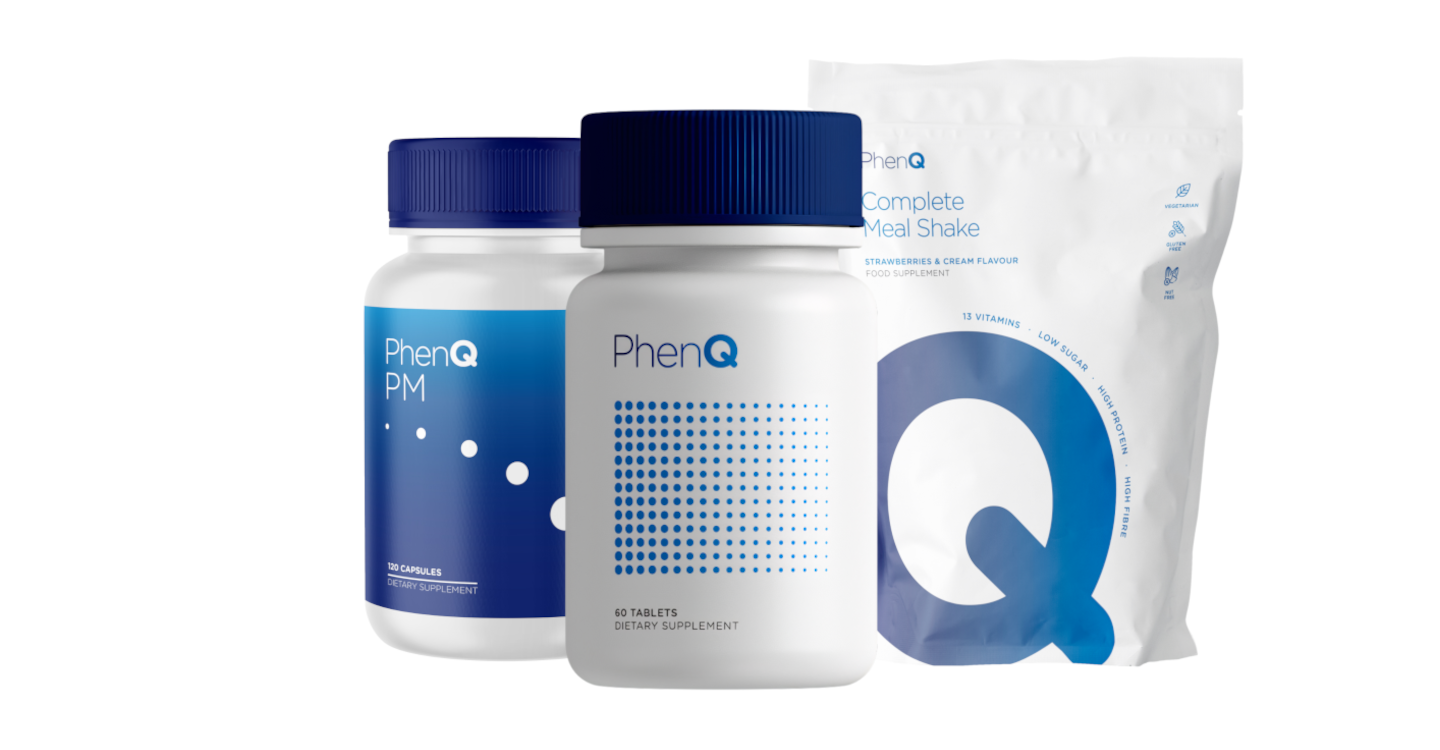Things you’ll learn here… |
Whether you're trying to boost your muscle growth, feel fitter or shed a few pounds, knowing how much you should work out can be tricky.
When it comes to cardio and strength training, being consistent with your efforts will help you reach your health goals.
But, how often should you push for the burn? And how much should you challenge yourself?
There's no one-size-fits-all answer to this question. Why? Well, because everyone's goals, lifestyle, and well—bodies—are slightly different.
If you're reading this and wondering, "How often should I train and how should I plan my workout schedule"—don't sweat it (yet).
Here we're going to cover what to consider when thinking about how many times per week you should push for the burn.
Let's get going.
Do you need to workout to lose weight?
You don't need to exercise to lose weight (at least, not in a formal way like weight training, classes or hitting the gym)—but it certainly helps.
Exercising regularly in a way that suits you will help you burn more calories, make you feel great, and help you work the major muscle groups.
In doing so, you'll reach your weight loss goals faster, give you more energy, and help you to develop lean muscle mass. A triple bonus.
Top tip: Full-body workouts are an excellent way of improving your body composition while leveling up your head-to-toe fitness.
Our essential workout guide is packed with practical hacks, hints, and tips to get your whole body moving.
A case of 'calories in and out'
Losing weight consistently really is a case of 'calories in and out.' By moving more and eating less, you'll achieve a steady calorie deficit that will help you consistently shed pounds over time.
Working out regularly will help you burn additional calories while boosting your metabolism (this will help you burn more calories when you're resting.
But, here's the thing: You don't need to move physical mountains to reach your weight loss goals. Really, it's all about balance.
It's about consuming slightly fewer calories than you burn consistently. It's about eating a balanced diet while allowing yourself the occasional treat or tipple. It's about carving out a lifestyle that works for you—one that makes you feel good. And, your exercise efforts should weave neatly into the mix.
So, when you're looking to lose weight the healthy way, the mantra is (say it out loud)...move more; eat well.
Read: Our essential guide on sneaky ways to burn calories throughout your day for top tips on reaching your weight loss goals...the right way.
The 'feel good' factor
Now, before we look at how often you should work out—let's consider how you should work out.
Armed with the right mindset, you'll be able to stay on track with your cardio workouts or strength training exercises long term—we call this the 'feel good factor.'
To lose weight, you don't have to take part in vigorous aerobic activity every week. You simply have to work out regularly while following a balanced, calorie-controlled, whole-food diet.
Here's how to get the best weight loss results from your workouts and maintain that all-important feel-good factor...
- Pick an exercise or activity that you love
- Mix up your weekly workouts a little (change location or routine from time to time) to keep things fresh
- Workout in a group to tap into the power of communal support and motivation
- Weave more movement into your day naturally by taking the stairs, walking a little more, standing at your desk or doing a little dancing around the home!
Read: All about why exercise is essential to your mental health for maximum weight loss inspiration.

How often do you need to work out for weight loss?
To reach your weight loss goals in a way that's healthy and measured, you should prioritize taking rest days in between your activities or training sessions.
Whether you're strength training, swimming, running or taking a regular exercise class, weaving rest days into your routine will give your body time to recover and repair.
Remember: Losing weight and feeling good is all about balance. Regular moderate physical activity coupled with a balanced (non-restrictive) diet is the best way to maintain weight loss long-term.
A good 'active rule of thumb'
To improve your cardiovascular fitness, boost your energy levels, and lose weight consistently—you need a training schedule that's...well...sustainable.
As we said, everyone is slightly different, and you should set your training frequency based on your personal weight loss goals, your current fitness level, and the demands of your daily lifestyle.
But, as a good active rule of thumb (or rough guide), here's what to aim for when it comes to training for starting and maintaining weight loss...
- Aim to take part in moderate activities or exercise (a mix of cardio or strength training) four times a week
Or
- Aim to take part in more intense exercise activities twice a week as well as one 30-minute activity or training session
Whatever approach you decide to take, you should take rest days in between your exercise or training sessions to help your body recover and avoid burnout.
Find your training 'sweet spot'
Strength training sessions will help you build muscle while burning some extra calories. Cardio and strength training will help you target all of your key muscle groups while significantly upping your daily energy expenditure (basically, you'll burn even more calories).
But, the most important thing to consider when deciding how much you should work out is your current fitness level as well as your schedule.
Use our 'active rule of thumb' advice as a guide and set a training frequency that suits you. Start smaller, and if you can, increase the rate or intensity of your exercise sessions over time.
As long as you're consistent with your efforts and you enjoy being active, you'll be able to use your workouts as a positive tool for weight loss. You've got this.
Read Our tip-top guide on practical fitness hacks for practical advice, hints and inspiration to make your workouts fun, fulfilling, and worthwhile.

Essential lifestyle tips to improve your weight loss efforts
In addition to regular physical activity, there are lifestyle tweaks you can make to reach your weight loss goals and keep those unwanted pounds off for good.
Eat well
At this point, you'll know that eating well will improve your lifestyle and help you lose more weight—but let's dig a little deeper, shall we?
To lose weight consistently, you have to create a calorie deficit. In simple terms, that means consuming slightly fewer calories than you burn.
According to official health advice, to shed pounds in a way that's safe and healthy, you should aim for a daily deficit of around 500 calories. Taking this approach means that you'll stay energized throughout the day while getting your fill of the nutrients you need to stay happy and healthy.
Eating right will not only improve your general wellbeing, but it will also fuel your workouts—which means you'll get into the fat-burning zone during every activity or session.
Here's what food groups to focus on for the best body-boosting results...
- Lean proteins
- Complex carbs
- Healthy fats
- Trusted meal replacement options (to take as part of a balanced whole-food diet
Top tip: Check out our quick and convenient guide to foods that burn fat for practical dietary hints, tips, and foodie inspiration.
Create personal harmony

Did you know? There's a link between prolonged periods of stress and weight gain.
When you're stressed, you can release more adrenaline and cortisol. When this happens, you feel a surge of energy throughout your body which—in a way—can send it into overdrive, increasing your appetite in the process.
Heightened cortisol levels can also prompt cravings for super sweet or salty foods—which is bad for your health, not to mention your weight loss goals.
We know that you've probably got a million plates to juggle and that daily life isn't always plain sailing. But, by taking a little time for self-care here and there, you can improve your response to stress and create some personal harmony.
Here are a few ideas to help you do just that...
- Have a Wim Wof-style cold shower in the morning to clear your mind and drive down your stress levels
- Go for a brisk daily walk for a little positive stress and relaxed thinking time
- Call a friend and have a chat for half an hour or so or arrange to meet for a coffee
- Try mindfulness or meditation techniques when and where you can
- Seek the help of a counselor or a mental health professional if you're feeling especially stressed or overwhelmed
Top tip: Follow our guide to mindfulness for weight loss to restore the inner peace and harmony you need to help you on your journey.
Take the right supplements
Last but certainly not least, taking the right weight loss supplements will complement your weight loss efforts.
Once you've improved your eating habits and found the right training frequency for your current goals, you can add a trusted supplement into the mix to help you reach your goals faster.
There are many weight loss supplements on the market making bold promises, but many of them do not deliver. And some supplements are actually bad for you.
So, when you're looking for a supplement to help you shed weight (the healthy way), you should check it contains trusted natural ingredients, and it comes with droves of positive user reviews. No ifs, not buts, no—no compromises.
Enjoy a healthier weight loss journey with PhenQ
If you are in search of a supplement that's tried, tested, and delivers the goods, try PhenQ.
Trusted by countless people across the globe and developed with high-quality natural ingredients like capsimax and nopal cactus, this effective weight-loss supplement will reduce your appetite, improve your mood, and help you burn more fat by raising your metabolism. Give it a try.




